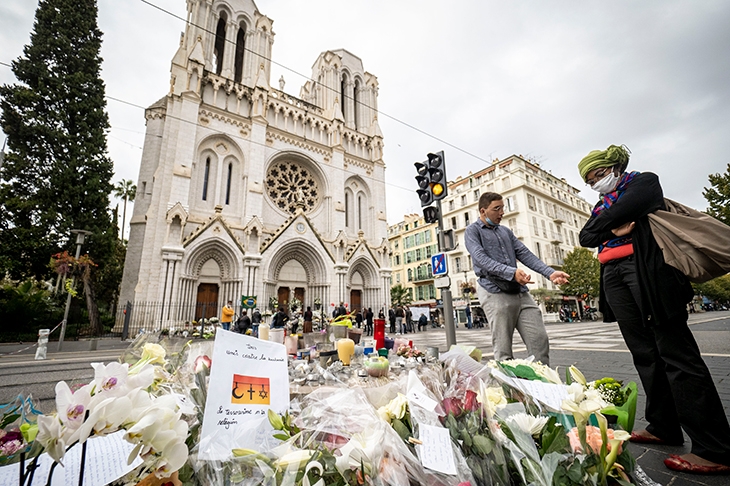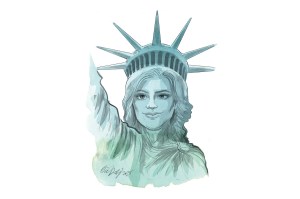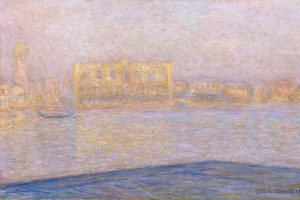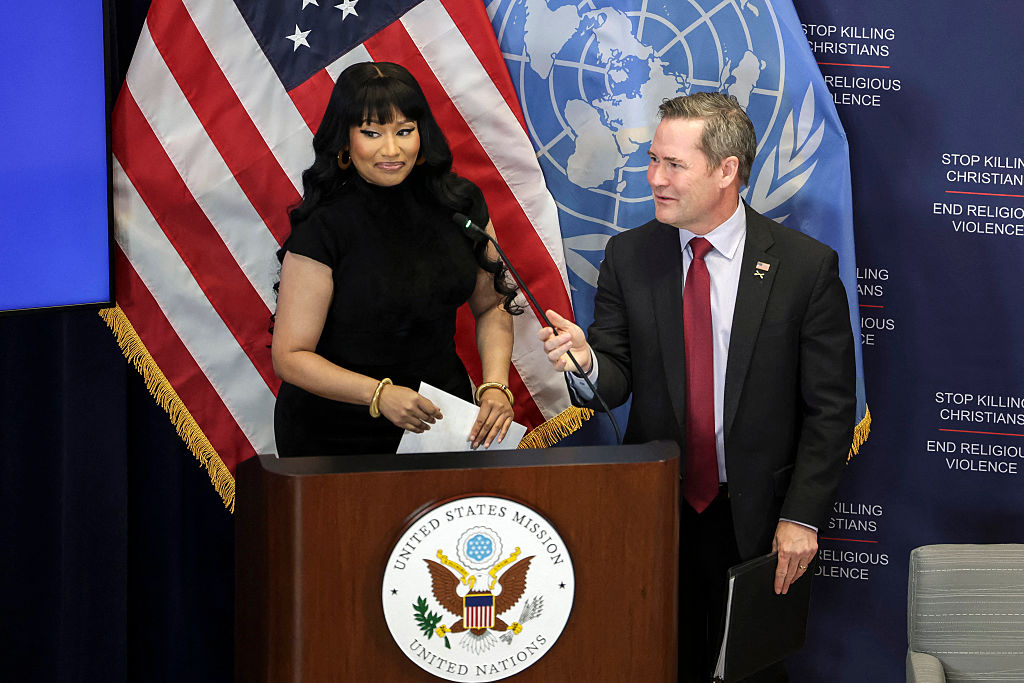It has become normal to think of the Islamist attacks in Europe as attacks on a secular way of life. The beheading of the teacher in Paris, the murders in Notre-Dame in Nice and the shootings in Vienna are presented as a struggle between radical Islamism and a particular kind of enlightened secularism born of the French Revolution. That’s the way Emmanuel Macron sees it; that’s the way most educated atheists across Europe see it. But what they forget is that Enlightenment ethics — the ideas of tolerance and fairness — have their foundation in Christianity. And the best response to violent Islamism isn’t humanism, but the idea of a loving, merciful Christian God.
As Jonathan Miller says, secularism simply doesn’t have the spiritual and moral resources to tackle a comprehensive social, political, economic and religious ideology like Islamism. To begin with, liberté, egalité and fraternité, the values of French secularism, are not self-explanatory or self-evident. For most of human history, most people have not been free or equal. Brotherhood is, around the world, most often seen as tribal, limited to one’s kinship or ethnic group. In Islam it’s the brotherhood of fellow believers that counts.
Freedom, liberty and the brotherhood of all men, precious not only in France but throughout the western world, flow from Christianity. It’s Christianity’s insistence on a personal relationship with God and an internalizing of his moral demand on us that led to the primacy of the person and of conscience in western thought — this is Larry Siedentop’s insight in his Inventing the Individual.
Christian freedom of conscience results in the value of free speech; to say what is in our minds and hearts — within reason. Equality, as a value, arises from the Judaeo-Christian teaching that all human beings have a common origin and equal dignity because they have been made in the divine image. It was just this view that led to the Dominican bishop Bartolomé de Las Casas’s brave struggle against the enslavement of the indigenous populations of Latin America, a struggle which gave birth to the language of human rights in Europe. The Christian idea of natural human dignity provided the slogan ‘Am I not a man and a brother?’ for the largely Evangelical-led campaign against the slave trade and then against slavery itself. The radical Enlightenment, on the other hand, ended in the massacres of Robespierre’s Reign of Terror.
[special_offer]
Throughout the ages, there have been Muslims, like the Sufis, who have, along with Christians, emphasized the importance of love. Others have held that there should be no compulsion in enforcing Islam on the unwilling. This is emphatically not the agenda of the man who murdered Samuel Paty. For an Islamist, the aim of jihad is to reduce freedom and equality. Speech, education, dress, diet and opinion are all controlled by the guardians of Islamist orthodoxy.
So there is a standoff here: the West believes its values to be the product of ‘reason’ alone rather than the result of cumulative tradition and custom. Islamists, on the other hand, hold that their beliefs and values come from divine revelation, which is immutable. Where do we go from here?
The West needs to recover its nerve and to acknowledge that its values are not freestanding but arise from the Judeo-Christian tradition. The situation in France and in Austria is a wake-up call for the West. We must reexamine the basis of our life together and remember our past, in order to have a future.
The Right Revd Dr Michael Nazir-Ali is a former Bishop of Rochester. This article was originally published in The Spectator’s UK magazine. Subscribe to the US edition here.

























